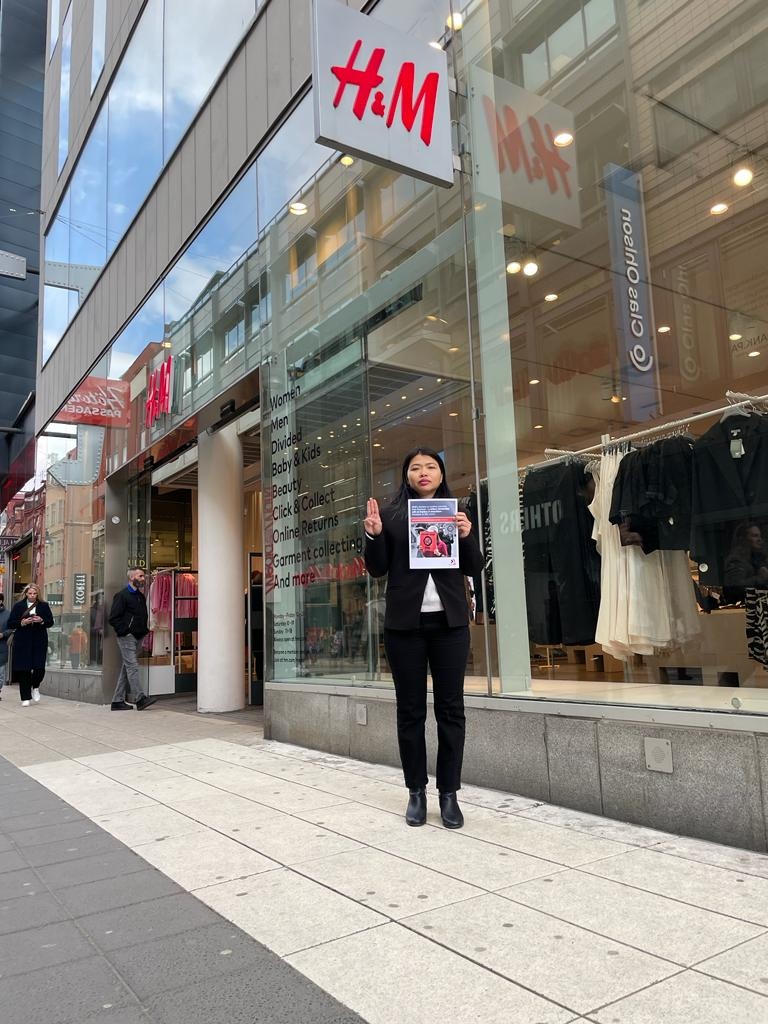4 May, 2023Swedish fashion giant H&M’s ESG record is better than many of its peers and the company’s responsible business practices has cemented a constructive relationship with IndustriALL. And yet H&M refuses to stop sourcing from Myanmar, a military dictatorship where unions are banned and foreign exchange are used to buy weapons. At today’s AGM, IndustriALL raised the question with the company.
The Myanmar Labor Alliance, which represents most of the trade union movement in Myanmar, has called on companies to divest.
Myanmar is a military dictatorship with no freedom of association. The Myanmar ministry of information reports that garment exports were worth US$4.7 billion last year. The military regime desperately needs foreign exchange to buy weapons, ammunition and fuel to conduct a civil war against the population. By sourcing from Myanmar, H&M maintains a flow of foreign exchange into the country, helping to sustain the regime.
The Ethical Trading Initiative, of which H&M is a member, released a report last year saying that due diligence is not possible in a context where independent worker voices are suppressed, where unions are banned, and trade unionists are imprisoned and killed. As a consequence of this report, responsible global brands, including Inditex, Fast Retail, Tchibo, Primark and Marks & Spencer, have left or announced plans to leave.
“We value our relationship but are extremely concerned by H&M’s decision to continue to source from Myanmar, which is a sharp departure from the responsible business practice we have come to expect. Given all of the above, how can H&M justify its presence in Myanmar?”
asked IndustriALL campaigns director Walton Pantland at the company AGM in Stockholm, Sweden.
H&M responded that they had a strong local team and were working with the EU MADE programme. This programme has been condemned by Myanmar unions as a whitewash.
IndustriALL has a global framework agreement with H&M, which have been used to challenge union-busting in supplier factories and remedy workers’ rights violations. The global brand has set important precedents by upholding freedom of association in supplier factories and contributing to workers’ health and safety, and yet it refuses to stop sourcing from Myanmar.
- H&M was the first company to sign the Bangladesh Accord, created after the Rana Plaza collapse ten years ago.
- H&M helped to secure the release of 35 trade unionists arrested in Bangladesh in December 2016.
- H&M is a founding member of the ACT on Living Wages initiative.
Cover photo: Myanmar trade union leader Khaing Zar, currently seeking asylum in Germany, outside an H&M store in Stockholm.


